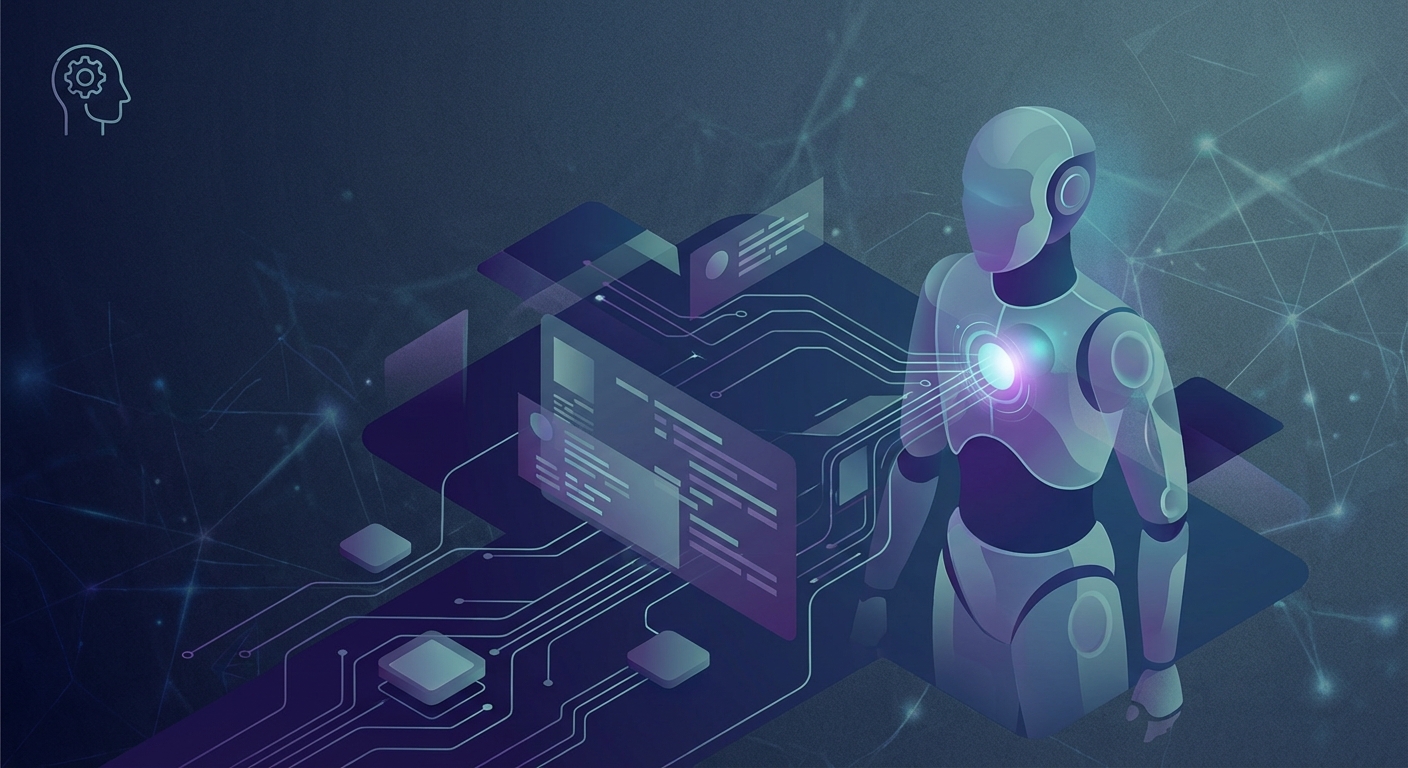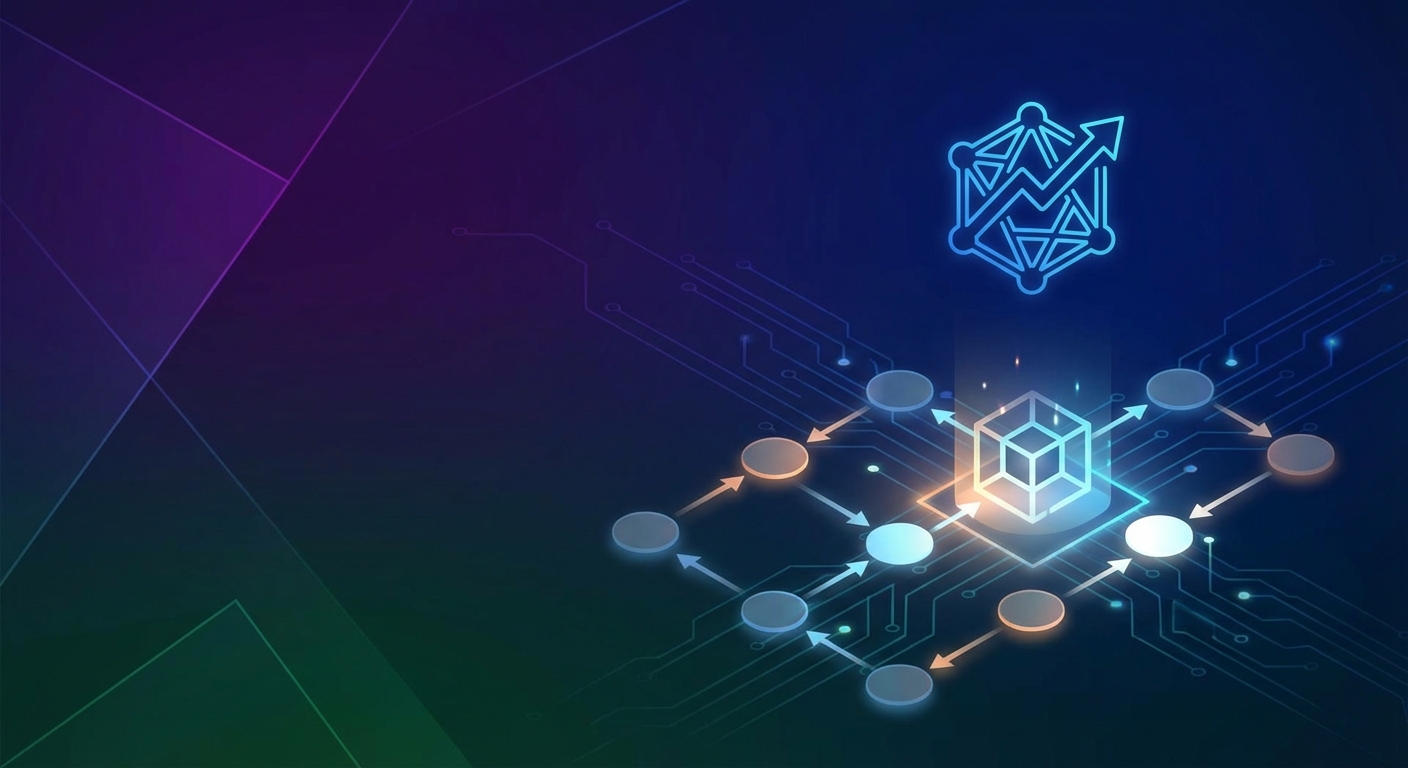Commonsense Knowledge in Artificial Intelligence
TL;DR
- This article dives deep into the world of commonsense knowledge in AI. It covers it's importance for AI agents, how it's acquired and represented, and how it's being used in real-world applications. We will explore the challenges, successes, and future directions of incorporating commonsense into AI systems, making them more intuitive and effective.
Introduction: The Missing Piece in AI
Okay, let's dive into this. Ever tried explaining something super obvious to a computer and it just doesn't get it? That's because computers often lack commonsense knowledge – the unspoken assumptions we humans use every day.
It's basically the stuff we all just know about how the world works. Think of it as the unspoken assumptions we use every day.
- It's the difference between knowing data and actually understanding it. An ai might be able to process millions of weather reports, but does it know that if it's raining, you should probably take an umbrella?
- These are the basic facts about the world humans know. For example, everyone knows fire is hot, water is wet, and people feel sad when they lose something important.
- It's not just about facts either; it's about understanding relationships. Like, knowing that if you drop a glass on the floor, it’s probably going to break.
Ai is great at crunching numbers and following rules, but it falls flat when it needs to, well, think.
- The big problem is current ai models are missing that real-world understanding. They can process data, but they can't always make the intuitive leaps that humans do.
- Imagine an ai that can't tell if someone's being sarcastic. Or one that takes a simple instruction way too literally. It's like teaching a robot to cook, but it doesn't know that you shouldn't put metal in the microwave.
- According to Autoblocks AI, AI systems often struggle with tasks that require understanding and processing of information that is considered to be common sense.
So, what are we gonna cover? We'll be looking at how ai can actually get this kind of knowledge, how to represent it in a way computers can use, and the challenges along the way. And obviously, a look at the future directions and potential impact of commonsense ai. Now, let's get into the importance of this in ai agent development.
The Significance of Commonsense in AI Agent Development
Okay, so why should we even care about giving ai agents "commonsense"? well, imagine trying to teach a self-driving car to navigate a city where the roads are under construction and detour signs are randomly placed. Without that basic understanding of how the world usually works, it's gonna end up stuck in a loop, right?
The significance of commonsense in ai agent development is huge, think of it as the secret sauce that turns a powerful tool into a genuinely helpful partner.
Commonsense equips ai agents to reason, plan, and solve problems more effectively. It's not just about processing data; it's about understanding why that data matters.
- Imagine a healthcare ai that not only diagnoses illnesses but also understands the patient's lifestyle and can suggest treatments that fit their daily routine. For example, instead of prescribing a complex medication schedule, it suggests simpler alternatives for a forgetful patient.
- Or take a retail ai agent. Instead of just recommending products based on past purchases, it understands seasonal trends and can anticipate customer needs, like suggesting snow boots before a major storm. This is about making smart decisions, not just fast ones.
- Context is everything, right? Commonsense helps ai agents grasp the subtle nuances of a situation. For instance, an agent managing financial investments might recognize that a sudden drop in a stock price due to a widely publicized scandal is different from a typical market fluctuation, and adjust its strategy accordingly.
Ever get frustrated when a chatbot just doesn't understand what you're really asking? That's because it's missing the commonsense piece.
- Commonsense is essential for ai agents to accurately interpret human language, like when resolving ambiguities. For example, consider the sentence "The bat flew into the cave." Does 'bat' refer to the animal or the sports equipment? Commonsense knowledge about caves and animals allows the ai to make the correct interpretation.
- It's also key in understanding intent. If someone asks an ai assistant, "I'm feeling under the weather," the ai should understand that the user is likely feeling sick and not literally standing outside.
- And let's talk about sarcasm. Sarcasm is hard, even for some humans, right? An ai with commonsense can detect sarcasm by recognizing the mismatch between the literal meaning of words and the context in which they are used. Take the phrase "Oh, that's just what I needed" after spilling coffee—an agent with commonsense understands the user is being sarcastic.
Here’s where it gets really interesting. Commonsense makes interacting with ai feel more natural and, well, human.
- It's about ai agents that can anticipate your needs and provide relevant information without you having to spell everything out. Think of a travel ai that doesn't just book your flight but also reminds you to pack an umbrella because it knows the weather forecast for your destination.
- And the more an ai understands your world, the more trust you're likely to place in it. Building trust is huge.
Okay, let's see this in action.
- In customer service, ai agents with commonsense can handle complex inquiries, like understanding that a customer complaining about a broken product might also need a refund or replacement.
- In healthcare, they can assist doctors by not only providing medical information but also understanding the patient's emotional state and offering empathetic support.
- And in education, ai tutors can adapt to a student's learning style by recognizing when they're struggling with a concept and offering alternative explanations.
Commonsense knowledge helps to solve problems in the face of incomplete information.
So, what's next? Now that we know why commonsense is important, let's dive into how we can actually teach it to ai.
Acquiring Commonsense Knowledge: Teaching AI the Basics
Alright, so you wanna teach ai some common sense, huh? It's like trying to explain to your cat why you can't just open the treat bag whenever it meows—tricky, but not impossible. There's a few ways to go about it, and none of 'em are perfect, honestly.
One way to get ai to understand the world is by text mining and information extraction. Basically, you're using natural language processing (nlp) to sift through tons of text and pull out the bits that represent common sense. Think of it as teaching a computer to read between the lines of, well, everything. This involves techniques like Named Entity Recognition (NER) to identify key entities (people, places, things) and Relation Extraction to understand how these entities are connected.
- The idea is that if you feed an ai enough articles, books, and random forum posts, it'll start to pick up on patterns and learn that, say, putting your hand on a hot stove is generally a bad idea.
- The challenges? Oh, there are plenty. For starters, there's a ton of garbage on the internet. Sifting through all that "noisy data" to find the actual nuggets of wisdom is a headache. Plus, even when you find something that seems like common sense, it might be presented in a weird, inconsistent way.
Another approach is using knowledge graphs and semantic networks to organize commonsense. Imagine a giant web of interconnected facts, where each fact is a node, and the connections between them show how they relate.
- So, you might have a node for "fire" and another for "hot." The connection between them would show that fire is hot. Then, you could connect "hot" to "pain," showing that hot things can cause pain. It's like creating a visual map of how the world works.
- These graphs are built using nodes, edges, and relationships. Nodes can be objects, concepts, or events. Edges define the relationship between to Nodes. It's like a huge game of connect the dots, but instead of making a picture of a dog, you're making a picture of reality.
- There's a few popular knowledge graphs out there already. ConceptNet is one of the big names, and Cyc is another. They're basically giant databases of common sense facts, ready for ai to gobble up.
You know how sometimes you just need a human to explain something? Well, the same goes for ai. Crowdsourcing is another method of gathering commonsense knowledge, but it's not without its limitations.
- The idea is simple: you ask a bunch of people to share their knowledge. This can be done through games, surveys, or just plain old question-and-answer sessions. It's like getting a group of experts to teach your ai, except the experts are just random people on the internet.
- Of course, this approach has its downsides. For one, it can be hard to verify the accuracy of the information you're getting. And, as with anything involving the internet, you're bound to get some trolls and pranksters thrown in the mix.
Finally, there's the idea of letting ai learn common sense by observing and interacting with the world. This is where things get really interesting.
- The idea is that if you put an ai in a simulated environment and let it explore, it'll eventually start to figure out how things work. It's like teaching a kid by letting them play with toys.
- Reinforcement learning is a big part of this. The ai gets rewarded for making good decisions and punished for making bad ones. For example, an ai learning to navigate a maze might be rewarded for reaching the exit and penalized for hitting walls. Over time, it learns to associate certain actions with certain outcomes.
- Imitation learning is another technique, where the ai learns by watching humans perform tasks. Think of it as learning by watching YouTube tutorials. For instance, an ai could learn to fold laundry by observing videos of people doing it.
So, those are some of the ways we're trying to teach ai the basics. It's a long road, and there's no guarantee we'll ever get there. But hey, even if we only make a little progress, it'll be worth it. Next up, how to represent the knowledge.
Representing Commonsense Knowledge: Formalizing the Informal
So, you've got all this commonsense knowledge, right? But how do you actually, like, tell a computer about it? Turns out, that's the tricky part. It's not like you can just download common sense from the internet – yet anyway.
One way is to use formal logic. Think of it as teaching the ai to think like a really, really strict lawyer. You set up a bunch of axioms (basic truths) and rules, and then the ai uses an inference engine to figure stuff out. An inference engine is a program that applies logical rules to existing facts (axioms) to derive new conclusions.
- For example, you might have an axiom that says "If something is a bird, then it can fly." Then, if you tell the ai that Tweety is a bird, it can infer that Tweety can fly. Unless, of course, you add another axiom saying "Penguins can't fly." It's all about setting up the rules of the game.
- The problem is, commonsense knowledge is often fuzzy and uncertain. Like, "People usually feel sad when they lose something important." But usually isn't exactly a logical term.
Another approach is to use semantic networks and frame systems. Imagine a giant web of interconnected concepts, where each concept is a node, and the connections between them show how they relate.
- You've got nodes for "fire," "hot," "pain," and so on. The links between them show that fire is hot, and hot things can cause pain.
- Frame systems are similar, but they also include attributes. So, you might have a frame for "restaurant" with attributes like "location," "cuisine," and "price range." Here's a simple example: a "restaurant" frame might have slots for
cuisine_type(e.g., Italian, Mexican),average_price(e.g., $, $$, $$$), andatmosphere(e.g., casual, formal). If an AI encounters the phrase "a cheap Italian place," it can fill in thecuisine_typeas "Italian" andaverage_priceas "$".
Commonsense is rarely black and white, yeah? That's where probabilistic models come in. These models use things like bayesian networks and markov models to represent uncertainty.
- Instead of saying "Birds can fly," you might say "There's a 95% chance that a bird can fly."
- This is useful for dealing with situations where you don't have all the information. Like, if you see someone walking down the street with a limp, you might guess that they're injured, but you can't be sure.
Finally, there's the idea of using embeddings. This involves representing words and concepts as vectors in a high-dimensional space. Distributed representations are a type of embedding where concepts are represented by a pattern of activation across many simple units, rather than a single unit. This allows them to capture nuanced relationships.
- Words that are similar in meaning will be close together in this space. So, "dog" and "cat" would be closer than "dog" and "car."
- This is cool because it allows the ai to learn relationships between concepts without you having to explicitly program them in. Plus, distributed representations capture more nuanced relationships.
Representing commonsense knowledge is a puzzle, no doubt. But each of these approaches gets us a little closer to building ai that can actually, you know, get it. Now that we've explored how to represent this knowledge, it's important to acknowledge the difficulties in actually using it. Up next, we'll look at the challenges in commonsense reasoning.
Challenges in Commonsense Reasoning
Commonsense reasoning, it's like that friend who always knows the obvious thing you're missing, right? But getting ai to do that? a whole other story. There's quite a few roadblocks on the path to building truly smart ai agents.
Okay, so first up, there's just the sheer amount of knowledge needed. Like, how do you even begin to teach an ai all the little things that humans just know without thinking? it's not just about facts, its about knowing which facts are relevant in which situation.
- Think about explaining to an ai why you can't use a hammer to spread butter on bread. we know it's impractical, but how do you codify that level of understanding?
- Current methods like text mining aren't cutting it. they're slow, and they often pull in a bunch of irrelevant noise along with the useful stuff. We need ways to gather and organize this knowledge that are way more efficient.
And then there's the whole reasoning thing. Even if you could somehow stuff a computer full of every fact in the universe, how do you get it to actually use that knowledge to make decisions?
- Commonsense reasoning is computationally intensive, like really, really hard. This is because the number of possible inferences and combinations of knowledge can explode exponentially, requiring immense processing power and memory. current algorithms just aren't up to the task of processing all that information in a reasonable amount of time.
- It's like trying to find a single grain of sand on a beach. You need better, faster ways for ai to sift through all the possibilities and come to a conclusion.
Here’s a fun one: context. The meaning of things changes depending on the situation, doesn't it?
- Take the phrase "the pen is in the box." Does that mean someone's writing with it, or just that it's stored there? ai needs to get that contextual awareness.
- It's not enough for ai to know a fact, it needs to know when that fact is relevant. So, we need methods that can understand and adapt to different situations.
And finally, how do you even know if your ai is getting any better at this? It's hard to measure something as squishy as "commonsense."
- Current evaluation metrics are limited, they don't really capture the full range of what commonsense reasoning entails. For example, a simple question-answering test might only check if the ai can recall facts, but not if it can reason about novel situations.
- We need more comprehensive ways to test ai and see if it's actually learning to think like a human—or at least, make reasonable decisions.
These are big hurdles, but they're not insurmountable. The development of better ai depends on finding solutions to these challenges, and, honestly, it's going to be a wild ride. Next up, we'll talk about some real-world applications and see where all this might lead.
Current Applications and Success Stories
Okay, so, ai with common sense? it's not just some sci-fi dream. It's actually starting to show up in real-world stuff, even though we're not quite at the "robot butler" stage just yet.
Think about how much ai is already dealing with language. From chatbots to translation apps, natural language processing (nlp) is everywhere. But without common sense, these tools can get really confused.
- Commonsense knowledge helps ai understand questions better. Like, if you ask a chatbot, "can i eat a rock?" it should know that's a bad idea.
- It also makes text summarization way more useful. Instead of just cutting and pasting sentences, the ai can actually grasp the main points and give you a real summary. No more weird, out-of-context snippets.
- And machine translation? huge improvements. Imagine an ai that gets idioms and cultural references instead of just doing a word-for-word swap. For example, translating "it's raining cats and dogs" literally would be nonsensical; commonsense allows an AI to understand it means "it's raining very heavily." That's the power of common sense.
Now, picture robots that aren't total klutzes. That's what common sense brings to the table.
- It lets robots understand object affordances. In other words, knowing what you can do with stuff. A robot with common sense knows you can pour water from a pitcher, not a shoe. Understanding affordances means a robot can grasp that a chair is for sitting, a cup is for drinking, and a door handle is for opening.
- Navigation gets a whole lot safer, too. A self-driving car needs to know that kids playing near a street might run into traffic.
- And interacting with humans? less awkward. A robot that gets sarcasm can actually be a decent companion.
Siri, Alexa, Google Assistant—we've all yelled at them at some point. But common sense could make them way less frustrating.
- Instead of taking every request literally, they could actually understand what you're trying to do, not just what you're saying.
- They could give you relevant info without you having to spell everything out. Like, if you say "I'm going to the beach," it should know to check the weather and traffic.
- And tasks? they'd actually get done right. No more accidentally setting alarms for 3 am.
Okay, this one's a bit less obvious, but hear me out: common sense can seriously boost cybersecurity.
- It helps systems spot weird behavior that might be a threat. Like, if someone's logging in from Russia and trying to access the ceo's account at 3 am, that's a red flag.
- Ai can also figure out what attackers are trying to do, not just what they're doing. This means it can stop attacks before they even happen.
- And responses? way more effective. The ai can actually understand the situation and take the right action, not just follow a script.
So, yeah, common sense in ai is a big deal. It's not just about making cooler gadgets, it's about making ai that's actually useful. What's next? well, let's look at the future, because with great power comes, you know, the rest.
The Future of Commonsense AI
Okay, so, where's all this commonsense ai headed? Honestly, it's kinda like asking where the internet was going in '95 – wild guesses all around. But a few things do seem pretty likely.
- Neuro-symbolic ai is a big one. It's about blending the pattern-recognition smarts of neural networks with the clear, logical reasoning you get from symbolic ai. Imagine ai that not only sees a picture but also understands what's going on in it, drawing on a knowledge base.
- Explainable ai (xai) is also gaining steam. No one wants a black box making decisions that affect their lives, right? Xai is all about making ai more transparent. So, instead of just spitting out an answer, it can explain why it came to that conclusion.
- And let's not forget about lifelong learning. The goal is to create ai that can continuously learn and adapt from new experiences, just like us. This differs from current training paradigms where models are trained on static datasets; lifelong learning aims for systems that can update their knowledge and skills incrementally as new data becomes available, without forgetting what they already know. Less static knowledge, more "street smarts," you know?
Look, getting ai to human-level intelligence? That's the holy grail. But it's gonna need common sense, big time. As Wikipedia notes, commonsense knowledge helps to solve problems in the face of incomplete information.
- One of the biggest hurdles is figuring out how to deal with uncertainty and ambiguity. Real life is messy, not a perfectly labeled dataset.
- We also need breakthroughs in how ai can learn from limited data. Humans can generalize from just a few examples; ai, not so much yet.
- A roadmap? More research on how humans reason, better ways to represent knowledge, and maybe a little bit of luck.
Of course, with smarter ai comes bigger responsibilities. We need to be extra careful about ethics.
- Fairness is huge. ai shouldn't perpetuate biases.
- Transparency is key. We need to understand how ai is making decisions, especially when they impact people's lives.
- And someone's gotta be accountable. If an ai messes up, who's to blame?
Ultimately, the future of commonsense ai isn't just about making smarter machines; it's about creating ai that's actually beneficial and trustworthy. It requires a careful balance between technological advancement and ethical responsibility. A big ask, but a worthwhile one.




